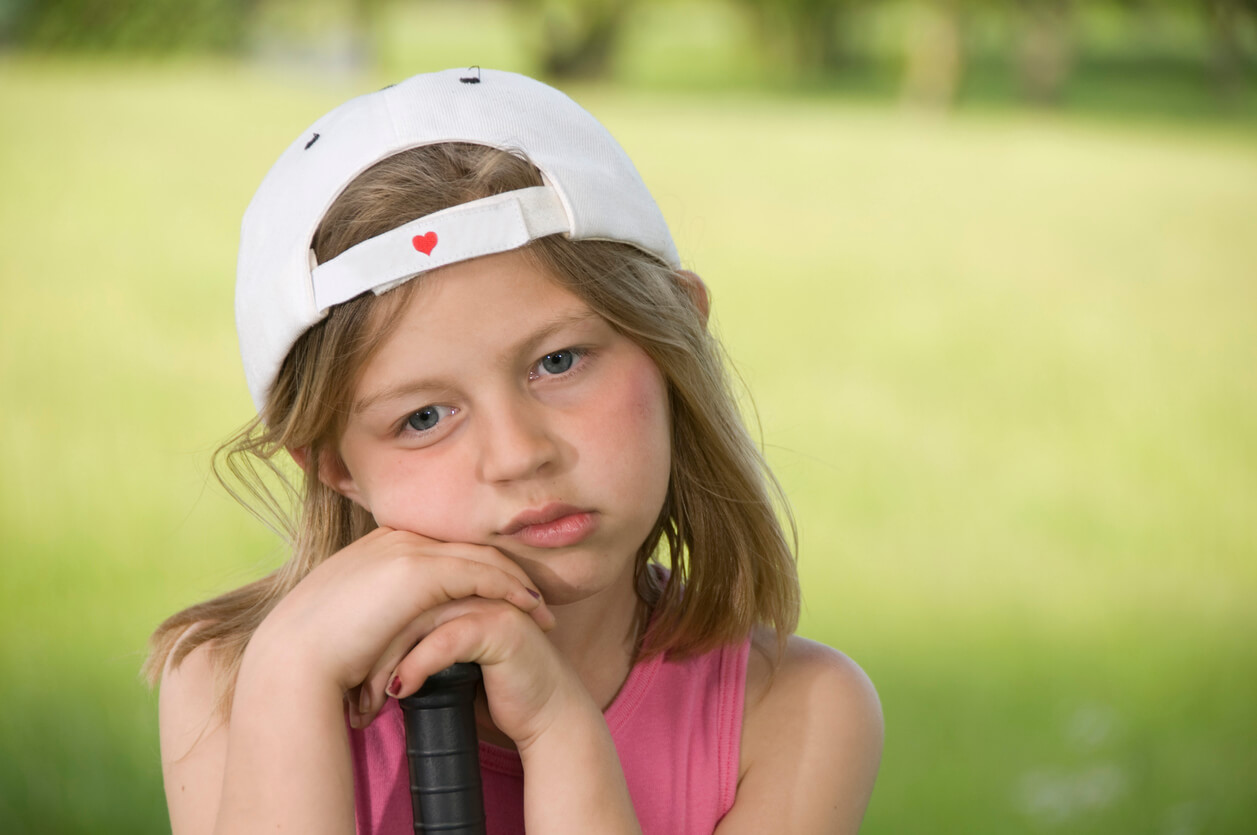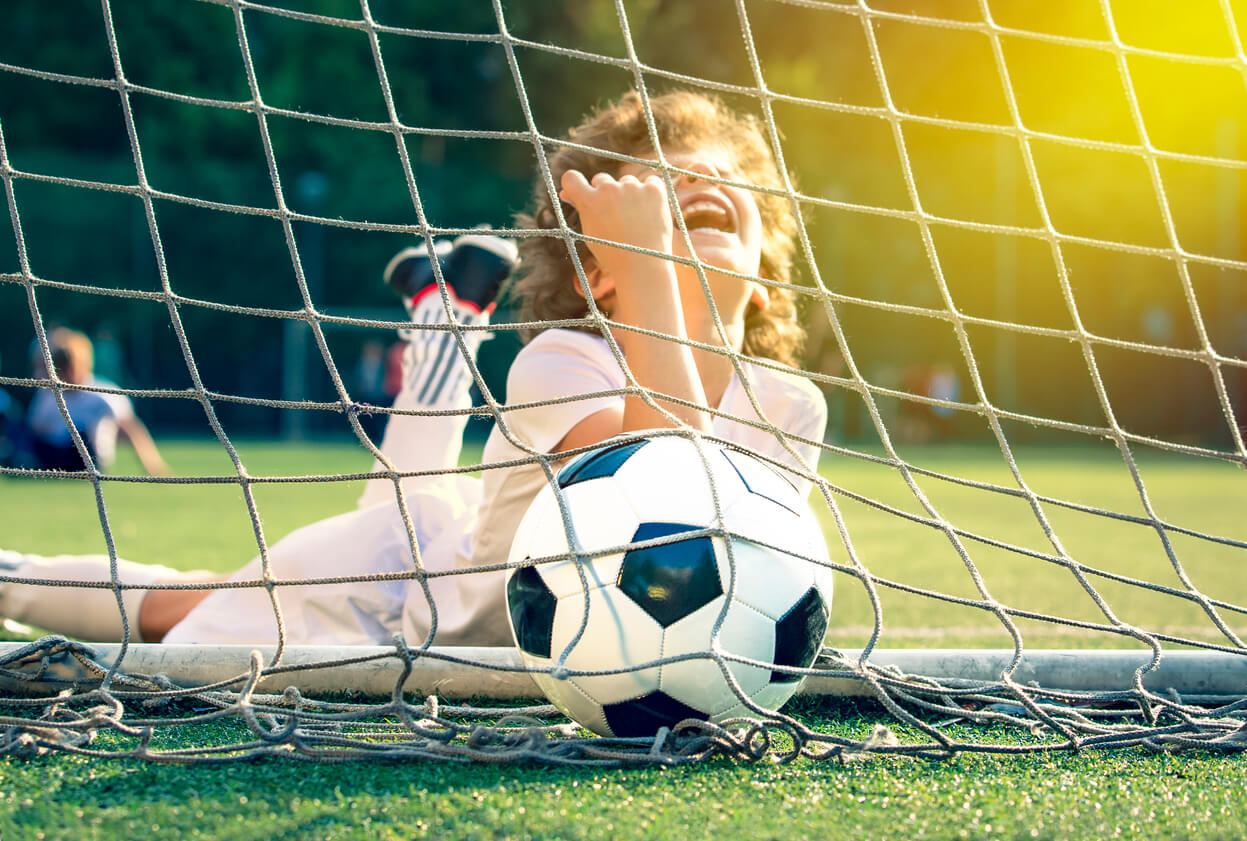What to Say When Your Child Loses


Written and verified by the psychologist Maria Fátima Seppi Vinuales
Crying, frustration, and helplessness. These are some of the emotions that appear when a child loses in a game or sport or when they get a lower grade than expected. These emotions are to be expected and should be allowed. But, how can you accompany them at that moment? In this article, you can find out what to say to your child when they lose.
Find out what to say and what to do when your child loses
Here are some recommendations to help your child when they lose.
Validate their emotions
When your child loses, it’s important to listen to them and empathize with their feelings. Whether it’s a game or a sporting activity, emotions and expectations are present and need to be worked on. Avoid phrases such as “it’s not a big deal”. You can even share some of your own experiences and reflect on how you felt in a similar situation, what you did, and how you resolved it. It’s important that you can ask them what they need to feel better and help them manage their emotions.
Help them think and feel about that moment
Through open-ended and exploratory questions, you can help them think about that situation. For example, you can ask them what the outcome means to them, what they think it’s like to lose and win, what they think they could do better next time, and what they think they did well.
Teach them to think about the process, not just the outcome
For example, if they lost in a match, you can invite them to think about how they enjoyed meeting new friends, the skills they developed, and how much fun they had. Also, the idea is that they can value the effort over time and not just focus on one moment.

Work on values when your child loses
At some point, it’s important to recover the sense of play and healthy competition. It’s essential to connect the activity with the values it promotes: Teamwork, respect, discipline, perseverance, or coexistence, among others. In this way, they can also learn that games and sports are much more than running after a ball or solving a task.
Talk to them about changes
Encourage them to think of it as a temporary situation that they can work on to improve. It’s also a way to help them stay motivated, accept that sometimes they win and sometimes they lose, and not get discouraged.
Work on motivation
After a few days, it’s important that you continue the conversation and help your child to connect with what they love so much about the game or sport. In this way, you guide them out of the plane of defeat to regain purpose.
Use different resources to approach the topic
Perhaps your child isn’t very good at starting by expressing their emotions, but it’s easier for them to think about it from the perspective of others. For this reason, you can appeal to different resources such as movies, drawings, and stories.
You may be interested in: How to Help Children Channel Their Emotions
Phrases or resources to use when your child loses
Some ideas that can help you talk to your child when they lose are the following:
- I know it was important to you, do you want to tell me how you feel?
- I know you wanted to win this game and it didn’t work out for you today, but it was worth a try.
- Do you want to draw how you feel right now?
- I’m available to listen to you and give you a hug whenever you need it.
- Even though you can’t see it now, your effort was immense and that’s what’s important.
- You’re very important and valuable to me, always and at all times, whether you win or lose.
- You just need to keep trying, that will help you get better every day.
- If things didn’t go well today, tomorrow you can try again to make it better.

What to avoid when your child loses
Some of the situations or phrases to avoid if your child loses are the following:
- Getting angry and fighting with other people over the outcome.
- Showing your emotion with greater intensity than your child’s emotion. In other words, becoming the protagonist of the moment.
- Bad-mouthing their teammates, the other team, the coach, the referee, or the judge.
- Ceasing to talk to your child or rejecting them.
- Minimizing your child’s emotion and making fun or joking about it.
You may be interested in: 7 Exercises for Children to Better Tolerate Frustration
It’s a double opportunity to learn
If your child loses in a sport or game, there’s a double learning opportunity. It’s not only about the child connecting with those emotions, but also about adults reviewing how they react to a similar situation.
It’s a good opportunity to analyze how you experience the disapproval of a project you worked hard on, what conceptions you have, and what messages you convey regarding success and failure. In addition to having their own ideas and personalities, children also listen to their environment and are influenced by it. Being an example to them is worth more than a thousand words.
Finally, it’s also important to review how much expectation or pressure you place on your child’s performance or results. Many times, sports lose their playful aspect because they become a demanding space where children feel the need to prove something to their parents.
Crying, frustration, and helplessness. These are some of the emotions that appear when a child loses in a game or sport or when they get a lower grade than expected. These emotions are to be expected and should be allowed. But, how can you accompany them at that moment? In this article, you can find out what to say to your child when they lose.
Find out what to say and what to do when your child loses
Here are some recommendations to help your child when they lose.
Validate their emotions
When your child loses, it’s important to listen to them and empathize with their feelings. Whether it’s a game or a sporting activity, emotions and expectations are present and need to be worked on. Avoid phrases such as “it’s not a big deal”. You can even share some of your own experiences and reflect on how you felt in a similar situation, what you did, and how you resolved it. It’s important that you can ask them what they need to feel better and help them manage their emotions.
Help them think and feel about that moment
Through open-ended and exploratory questions, you can help them think about that situation. For example, you can ask them what the outcome means to them, what they think it’s like to lose and win, what they think they could do better next time, and what they think they did well.
Teach them to think about the process, not just the outcome
For example, if they lost in a match, you can invite them to think about how they enjoyed meeting new friends, the skills they developed, and how much fun they had. Also, the idea is that they can value the effort over time and not just focus on one moment.

Work on values when your child loses
At some point, it’s important to recover the sense of play and healthy competition. It’s essential to connect the activity with the values it promotes: Teamwork, respect, discipline, perseverance, or coexistence, among others. In this way, they can also learn that games and sports are much more than running after a ball or solving a task.
Talk to them about changes
Encourage them to think of it as a temporary situation that they can work on to improve. It’s also a way to help them stay motivated, accept that sometimes they win and sometimes they lose, and not get discouraged.
Work on motivation
After a few days, it’s important that you continue the conversation and help your child to connect with what they love so much about the game or sport. In this way, you guide them out of the plane of defeat to regain purpose.
Use different resources to approach the topic
Perhaps your child isn’t very good at starting by expressing their emotions, but it’s easier for them to think about it from the perspective of others. For this reason, you can appeal to different resources such as movies, drawings, and stories.
You may be interested in: How to Help Children Channel Their Emotions
Phrases or resources to use when your child loses
Some ideas that can help you talk to your child when they lose are the following:
- I know it was important to you, do you want to tell me how you feel?
- I know you wanted to win this game and it didn’t work out for you today, but it was worth a try.
- Do you want to draw how you feel right now?
- I’m available to listen to you and give you a hug whenever you need it.
- Even though you can’t see it now, your effort was immense and that’s what’s important.
- You’re very important and valuable to me, always and at all times, whether you win or lose.
- You just need to keep trying, that will help you get better every day.
- If things didn’t go well today, tomorrow you can try again to make it better.

What to avoid when your child loses
Some of the situations or phrases to avoid if your child loses are the following:
- Getting angry and fighting with other people over the outcome.
- Showing your emotion with greater intensity than your child’s emotion. In other words, becoming the protagonist of the moment.
- Bad-mouthing their teammates, the other team, the coach, the referee, or the judge.
- Ceasing to talk to your child or rejecting them.
- Minimizing your child’s emotion and making fun or joking about it.
You may be interested in: 7 Exercises for Children to Better Tolerate Frustration
It’s a double opportunity to learn
If your child loses in a sport or game, there’s a double learning opportunity. It’s not only about the child connecting with those emotions, but also about adults reviewing how they react to a similar situation.
It’s a good opportunity to analyze how you experience the disapproval of a project you worked hard on, what conceptions you have, and what messages you convey regarding success and failure. In addition to having their own ideas and personalities, children also listen to their environment and are influenced by it. Being an example to them is worth more than a thousand words.
Finally, it’s also important to review how much expectation or pressure you place on your child’s performance or results. Many times, sports lose their playful aspect because they become a demanding space where children feel the need to prove something to their parents.
All cited sources were thoroughly reviewed by our team to ensure their quality, reliability, currency, and validity. The bibliography of this article was considered reliable and of academic or scientific accuracy.
- Claudia Arlen Moreno Gómez; Cecilia Silva; Karla Edith González Alcántara (2021). Estrés percibido en niños deportistas: Análisis de grupos focales. Interdisciplinaria, vol. 38, núm. 3, pp. 7-23, 2021. Centro Interamericano de Investigaciones Psicológicas y Ciencias Afines
- LÓPEZ CASSÀ, È., (2005). La educación emocional en la educación infantil. Revista Interuniversitaria de Formación del Profesorado, 19(3),153-167.[fecha de Consulta 8 de Diciembre de 2022]. ISSN: 0213-8646. Recuperado de: https://www.redalyc.org/articulo.oa?id=27411927009
This text is provided for informational purposes only and does not replace consultation with a professional. If in doubt, consult your specialist.








